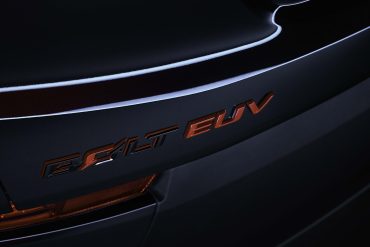Tesla Inc has stated that customer privacy is a top priority and that the cameras in their vehicles are designed to protect privacy. However, according to nine former employees who spoke with Reuters, between 2019 and 2022, groups of Tesla employees shared invasive videos and images recorded by customers’ car cameras on an internal messaging system.
Some of the recordings included embarrassing situations, such as a video of a naked man approaching a vehicle. Other recordings shared included crashes and road-rage incidents. One crash video in 2021 showed a Tesla hitting a child riding a bike. Additionally, employees shared more mundane images such as pictures of dogs and funny road signs, which were made into memes and posted in private group chats.
Several former employees of Tesla raised concerns about potential privacy violations, highlighting that customers may not be aware that their privacy is being breached. In some cases, employees could access recordings made when cars were parked and turned off, providing a glimpse inside people’s garages and private properties.
Tesla did not respond to detailed questions about the matter. It is unclear whether the practice of sharing recordings continues today or how widespread it was.
According to Reuters, over 300 former Tesla employees involved in developing self-driving systems were contacted. More than a dozen spoke anonymously to answer questions. However, the news agency couldn’t obtain any shared videos or images, and some former employees said sharing was only for legitimate work reasons.
AI systems often need humans to train them, like Tesla’s image-labeling workers in the US and Africa. These workers view and label thousands of videos and images captured by the car’s cameras to help the vehicle identify objects. Tesla has automated some of the process and closed a data-labeling center in California, but still employs hundreds of data labelers in Buffalo, New York, and has been expanding its staff.
While some ex-Tesla staff saw no issue with video sharing, others deemed it unethical and an invasion of privacy. One former employee even called it a major breach of privacy to track recording locations on Google Maps. Sharing sensitive videos may violate Tesla’s privacy policy and trigger the FTC’s intervention. However, the FTC spokesperson declined to comment on specific firms or practices.
To enhance autonomous driving, Tesla collects vast amounts of data from its millions of cars worldwide. Car owners authorize the process via the touchscreen, and the data belongs to them. If owners agree to share their data, Tesla uses it to improve products and address issues. The data might include videos or images, but it’s not linked to personal information or the car’s ID number.
A German data privacy lawyer, Carlo Piltz, believes that circulating recordings made by Tesla’s cameras internally could be difficult to justify legally under Europe’s data protection and privacy laws. He argues that there is no clear relationship between these recordings and the safe and secure functioning of Tesla’s self-driving system.
Tesla’s use of cameras in its cars has caused controversy in some countries. In China, government buildings and residential areas have banned Tesla cars due to concerns about the cameras. However, Elon Musk has denied any claims that Tesla uses its vehicles for spying purposes.
Regulators have examined Tesla’s car-camera system for potential privacy violations, with most cases concentrating on the rights of individuals who were unknowingly recorded by stationary Tesla cars, as opposed to those of Tesla owners. The Dutch Data Protection Authority conducted an inquiry into Tesla’s “Sentry Mode,” a feature that identifies any suspicious behavior when the vehicle is parked, in February.
During the investigation, it was found that individuals passing by Tesla cars were being recorded without their awareness. Nevertheless, the Dutch regulatory authority held the owners of the vehicles accountable for the recordings, rather than Tesla.
After some alterations were made to the Sentry Mode, including flashing the car’s headlights to indicate the potential for being recorded, the DPA did not impose any sanctions on Tesla. The DPA emphasized the importance of using personal data solely for specific purposes and protecting sensitive personal data.
At Tesla’s San Mateo office, a predominantly young workforce in their twenties and early thirties brought with them a culture of exchanging amusing memes and viral content. According to former employees, chat rooms were relaxed, with workers sharing jokes and labelled images. A few ex-employees stated that certain labelers shared screenshots in private group chats on Tesla’s internal messaging system, Mattermost, which drew responses from other workers and managers.
To keep the conversation going, participants would contribute their marked-up images, jokes, or emojis. Some of the emojis were custom-made and referred to office inside jokes. One former worker explained that sharing images was a means of “breaking the monotony,” while another said that it gained respect from colleagues.
Former employees claimed that shared content included dogs, interesting cars, and clips of people recorded by Tesla cameras tripping and falling, among others. However, some of the shared content was disturbing, including a clip of someone seemingly dragged into a car against their will.
Ex-employees also revealed that video footage of Tesla crashes, such as incidents of reckless driving or collisions with bicycles and motorcycles, was shared among the workforce. On occasion, Tesla managers would take action against the dissemination of inappropriate content on public Mattermost channels as it violated the company’s policies. Nevertheless, screenshots and memes persisted to be exchanged through private chats on the platform.
Two former employees mentioned that one of the perks of working as a data labeler in San Mateo was the chance to win a prize, such as the use of a company car for a day or two. However, some of the winners became paranoid when driving the electric cars, knowing how much data those vehicles could collect.


